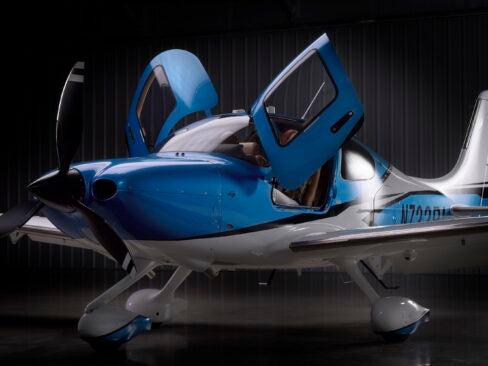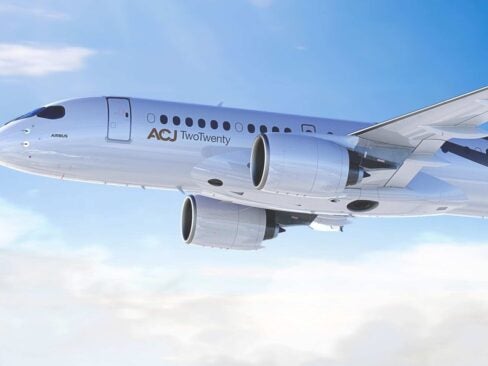Demand for private flying remains strong. Research from Private Jet Card Comparisons reveals 95% of flyers who went private after the start of Covid are sticking with it, with 50% of all private jet users opting for private travel due to poor airline service and delays. However, due to private jet flight activity falling slightly off its peak 2021-22 levels (WingX reports private flight departures are down about 4% globally year-over-year), flight operators are back to churning out innovations and adding options.

Leaders of the pack
NetJets, Flexjet, VistaJet, PlaneSense, Sentient Jet and Nicholas Air have established themselves as market leaders. Here’s how they earned their spots on this year’s list of notable providers.
NetJets
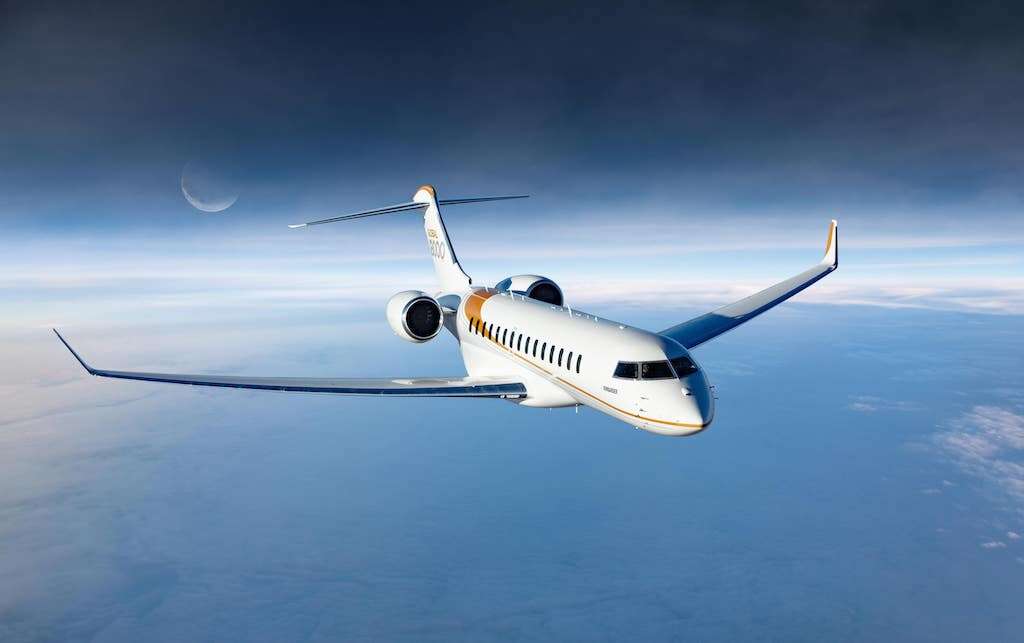
How well is NetJets doing? According to Berkshire Hathaway’s vice chairman Charlie Munger, its private aviation subsidiary is now worth as much as a major airline. If you want to buy a fractional share of a jet in the US, which starts at 50 hours of flight time and usually comes with a five-year contract, the first delivery slots aren’t available until late 2024, and a typical day means over 1,200 flights. That’s the good news for NetJets.
The good news for you is that NetJets is now back to selling 25-hour jet cards after a year-and-a-half hiatus, albeit with more restrictions. It is also continuing its 25-hour leases, introduced in 2022. In Europe, NetJets has rolled back blackouts and introduced new cards for flexible flyers. There are also more airplanes on the way. Earlier this year, it announced plans to buy up to 250 of Embraer’s popular Praetor 500 midsize jets in a deal valued at over $5bn.
Often overlooked is NetJets’ girth when it comes to ultra-long-range aircraft. It became the launch fleet customer of Bombardier’s newest entry, the Global 8000, and as of August, it had 61 Global jets in its fleet. Between this year and last, it will have taken delivery of 175 factory-new airplanes, from light jets to large cabins, bringing the average age of its fleet to about six years.
Flexjet
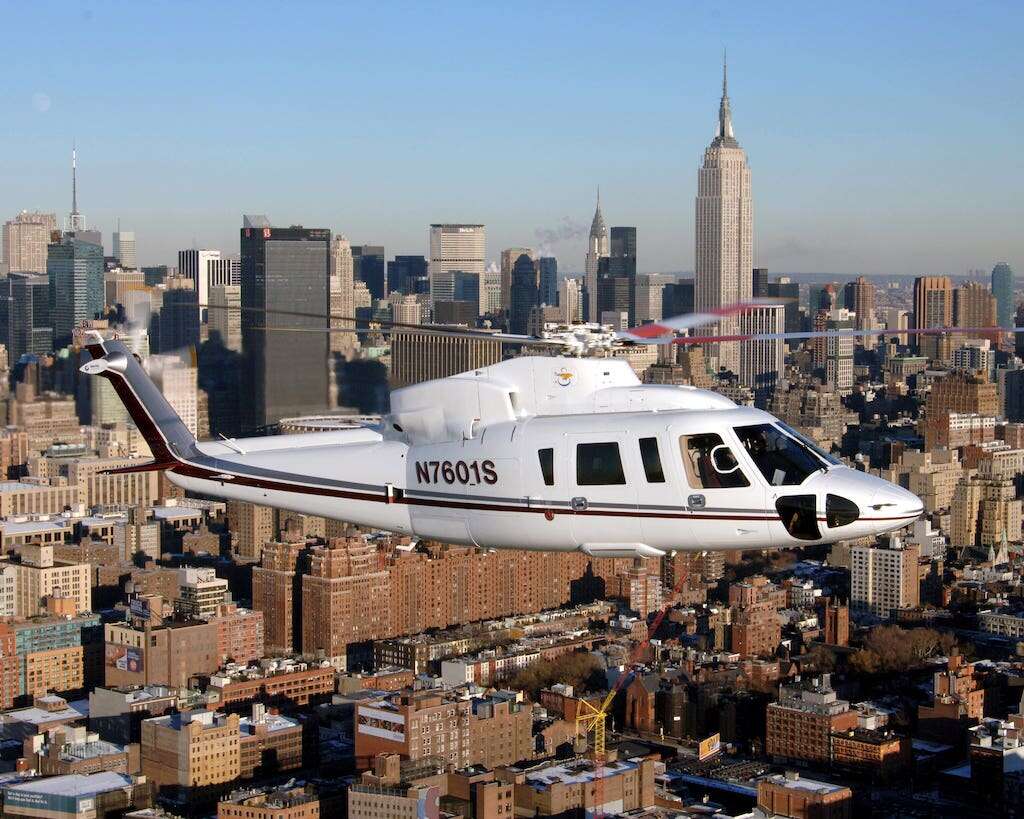
Flexjet may be number two regarding size among fractional players, but it has worked hard over the past decade to become the number one choice. Innovations like designer cabins add a bit of flair to your journey; simultaneously, the company has been introducing new catering concepts.
Its Red Label program keeps crews with the same aircraft, making more of a whole ownership experience. Of course, making your journey more stylish and tastier becomes irrelevant if you get stuck in traffic when you land. That last mile has become more difficult as cities like London, New York and Miami become more congested. Yet, for all you read about eVTOLs, they are still several years away. So — meet Flexjet Helicopter.
Its fleet of Sikorsky S-76 twin-engine helicopters can swiftly whisk you away when you arrive at these congested cities and zoom you to a helipad adjacent to your final destination, or even from meeting to meeting, and then back to the airport.
Flexjet sells its helicopter program separately but offers its Gulfstream G650 owners access to the rotorcraft. Flexjet also has something NetJets doesn’t. While its rival won’t take delivery of the first of its Praetor 500s until 2025, Flexjet has shares currently available. As Hall of Fame football coach Bill Parcells liked to say: “The best ability is availability.”
VistaJet

Regular private jet flyers know that fine dining is rarely fine or dining. Instead, it often consists of grab-and-go sandwiches with packets of mustard and fruit trays. VistaJet aims to change this. It has recently partnered with Estiatorio Milos, which provides exclusive menus for flights departing from Dubai, Athens, London, Las Vegas, New York, Miami and Montreal.
Diego Sabino, vice president of private dining, says, “We are uncompromising when it comes to in-flight dining and believe that food at altitude should taste as good as food at your favorite restaurant. We focus on providing quality ingredients, exceptional service and inspired private dining in the air to our members, but why stop there? As a brand, we are passionate about creating experiences that our members will remember.”
[See also: Going for Broker: The Rise of On-demand Private Jet Charters]
There are now also more opportunities to enjoy VistaJet’s white glove service. After it acquired Jet Edge and Air Hamburg, and took more deliveries of Bombardier Global 7500s and Challenger 350s, the Vista Members Fleet has expanded from under 80 airplanes in 2018 to more than 350 today, of which over 200 are now branded with the red stripe, complete with upgraded interiors and high-speed WiFi.
Of course, one of the obstacles to joining VistaJet’s Program, its version of a jet card, was that it required buying at least 50 hours of flight time per year. That’s no longer a barrier. VJ25 gives you access to fixed rates with guaranteed availability for transoceanic flights and requires buying just 25 hours.
PlaneSense
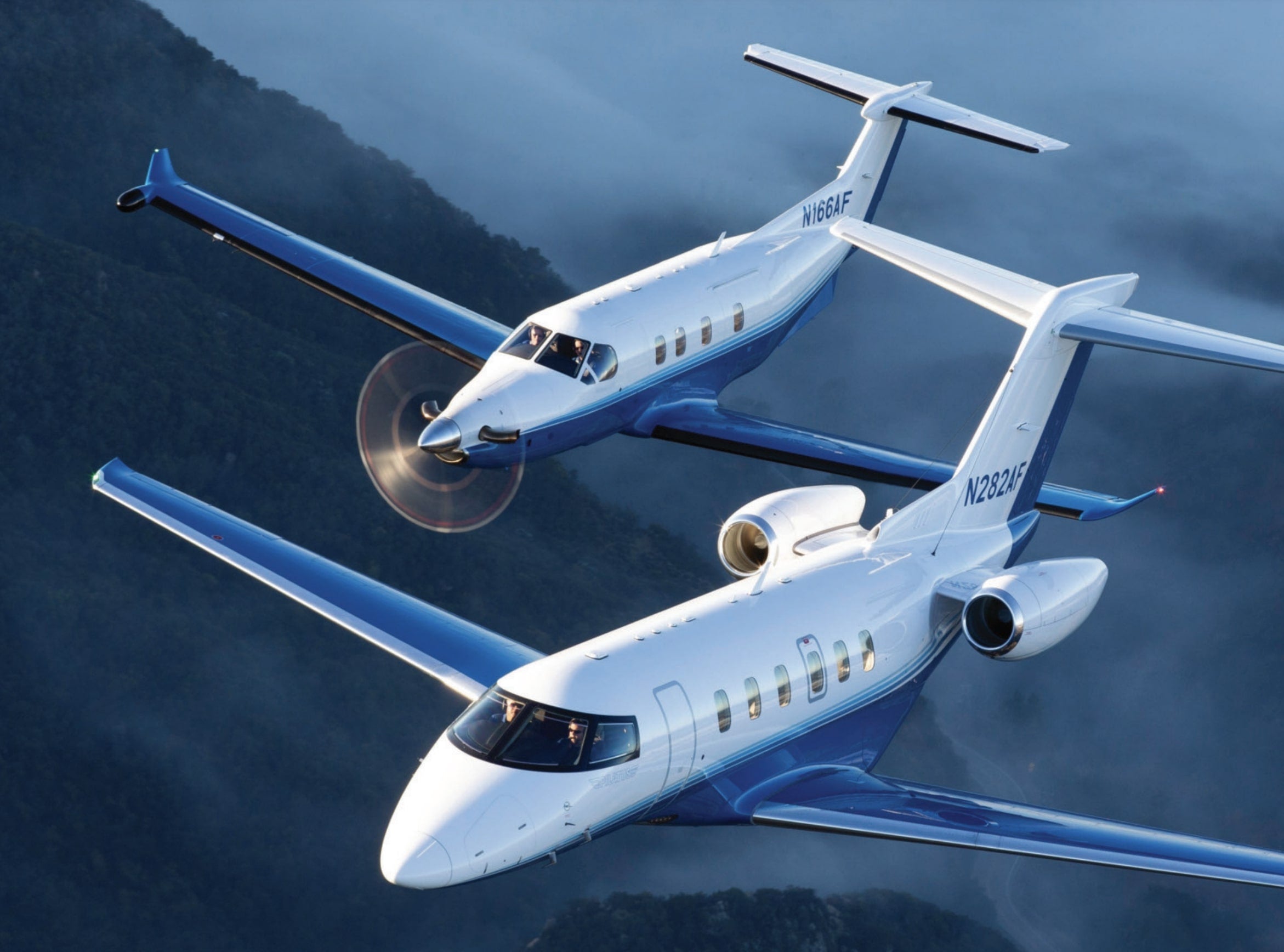
Sometimes, the tortoise beats the hare, and in those cases, they deserve a bit of the spotlight in an industry often fueled by PR-led headlines. In a time of turmoil, no flight provider has been steadier than fractional operator PlaneSense.
The New Hampshire-based provider recently took delivery of the 2,000th Pilatus PC-12 turboprop, an honor from the Swiss OEM (original equipment manufacturer) to the largest operators of its aircraft worldwide (PlaneSense has flown 80 of the types since its founding in 1995).
Even today, PlaneSense only operates Pilatus aircraft, offering just two types — the PC-12 and its PC-24 twin-engine jet.
With Wheels Up retreating from large swaths of the Midwest and Pacific Northwest, PlaneSense, which ranks as the seventh-largest operator in the US (based on fractional and charter hours), now stands as the turboprop leader with a nationwide primary service area, offering guaranteed rates and availability. By early 2024, its PC-24 could be national as well.
Sentient Jet
Don’t believe those stories from charter brokers claiming to be the Uber of private jets. Virtually all are there to capture your email address for future marketing, and they don’t give you that nirvana of a confirmed price with instant confirmation, just an estimated price and a “we’ll get back to you later” message.
Last year, Sentient Jet debuted text-to-book and has now rolled it out to all customers, in addition to its app, desktop booking, phone, and yes, even a fax. However, text-to-book means you can book your flight at fixed rates with guaranteed availability with just a few keystrokes, receiving your confirmation in seconds.
That’s not all. Sentient continues to include 300% carbon offsets for every jet card member flight, a move designed to account for non-carbon emissions that also contribute to climate change. Because it’s part of the base rate, Sentient customers never have to pay more to fly with a green conscience.
The Boston-based inventor of the jet card has continued to pile on the perks too, offering an array of lifestyle partnerships that are cumulatively valued at nearly $200,000.
Nicholas Air

Nicholas Air is one of the top 10 US operators based on fractional and charter flight hours, but don’t expect it to place big aircraft orders. Instead, the flight provider — founded by CEO and owner Nicholas J Correnti in 1997 — adds aircraft one or two at a time as it grows its jet card membership.
Most notable are the memberships. While providers typically give you one or two program options, Nicholas Air enables you to buy access to its entire fleet. From Phenom 100 VLJs up to super-mid Bombardier Challenger 350s using the Rise Card; or by specific aircraft type, including the CJ3, Phenom 300 or Latitude with the Blue Card; or for flexible flyers, with its Lite Jet Card, Nicholas Air offers lower prices with longer callouts (its standard non-peak callout is 24 hours).

Making moves
Several contenders are pitching to cut into the market share of the established players. From A to V (that’s Airshare to Volato, including Fly Alliance and flyExclusive), this quartet wants to expand your horizons when it comes to choosing a flight provider.
Airshare
Kansas City-based Airshare traces its history back to 2000, but since John Owen joined the company in 2016 as CFO, becoming CEO in 2018, it has rebranded and expanded southeast to Florida, with plans to expand to the northeast US in 2024. It has also moved on from Phenom 100 VLJs to focus on the Phenom 300 and has added the super-midsize Bombardier Challenger 3500; the firm expects to own up to 40 in the next few years.
At press time, it had announced an agreement to acquire the aircraft management business from Wheels Up, which should triple its fleet size. Most important, it brings its days-based fractional and jet card concept to new markets. For those of you making long flights or multiple flights on the same day, it can bring up to 50% more flight hours for the same share purchase.
Volato
Embraer’s Phenom 300 has been the dominant light jet in fractional and jet card programs for the better part of a decade. It now has competition: 2021 start-up Volato is selling its HondaJet share and membership options on the world’s largest fleet of the popular VLJs as a more cost-effective way to fly groups of four passengers or fewer on missions under 1,000 miles.
Executives point to the quiet cabin and lower costs for the short flights. Of note, the company’s share programs are structured so you can fly as many or as few hours as you wish, and don’t have to worry about losing your hours or buying more if you are flying more than expected. What’s more, you get a cut of the charter revenue from your jet, offsetting some of the expense.
Volato has also launched a pair of jet cards — Stretch and Insider. Both reward flyers who are flexible, giving them flight credits if they agree to move departure time or to a nearby airport.
Next year, Volato will bring its alternative approach to the Gulfstream G280 as it launches the first fractional program using the popular super-midsize jet. Founder and CEO Matt Liotta says the firm’s plan to go public via a SPAC merger will offer consumers more transparency.
In the meantime, the operator has achieved IS-BAO Stage 3 status, the highest safety rating from the International Business Aviation Council, a nonprofit international trade association.
flyExclusive
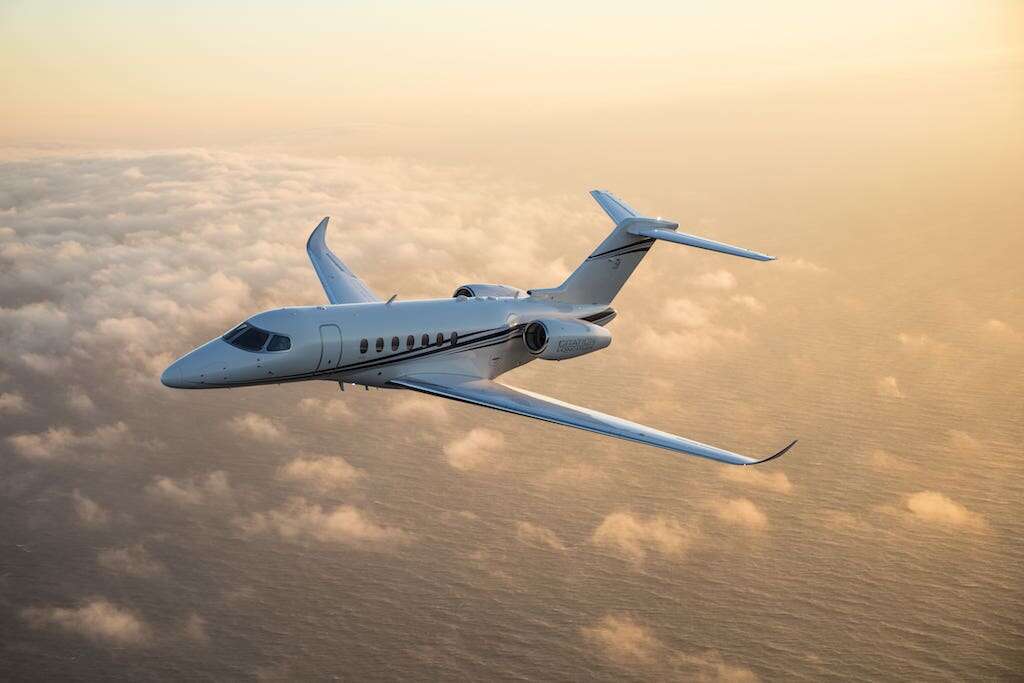
In less than a decade, owner and CEO Jim Segrave has grown flyExclusive to be the fifth-largest operator in the US ranked by charter and fractional hours — but that was mainly by selling to the wholesale market. In 2020, the firm launched its first jet card program with an innovative approach that rewards efficient flying, for longer flights and those of you who need to make multiple flights on the same day.
It also made its mark by buying and leasing pre-owned aircraft that it then painted and refurbished in-house at its custom-built facilities in Kinston, North Carolina. Now, it is bringing a differentiated approach to the fractional market with a pair of orders for new aircraft from Textron Aviation. The first of up to 30 Cessna Citation CJ3+ jets is due later this year.
A second order calls for up to eight Cessna Citation XLS Gen2 midsize jets and six Cessna Citation Longitudes. Unlike most other fractional programs, flyExclusive doesn’t charge a monthly management fee, instead using a daily access fee, providing private flyers with a new option to consider.
Fly Alliance
Top 20 charter operator Fly Alliance is also new — founded by industry veterans Kevin Wargo and Christopher Tasca in 2019 — but it is moving forward in a new direction. Its plan is to join flyExclusive in choosing Textron Aviation as its OEM partner in launching its first new aircraft fractional and sale-leaseback program.
It has already taken delivery of the first of 12 Cessna Citation XLS+ Gen2s with six Cessna Citation Latitudes and two Cessna Citation Longitudes on the way. The firm’s jet card is one of the few programs that include Hawaii in the guaranteed-availability, fixed-rate service area and, as demand subsided from record levels, it cut its peak days by 40%.
For those of you who need to book flights at the last minute, it remains one of the few options with a 24-hour callout.
News from the skies
Ownership benefits: Citation Ascend
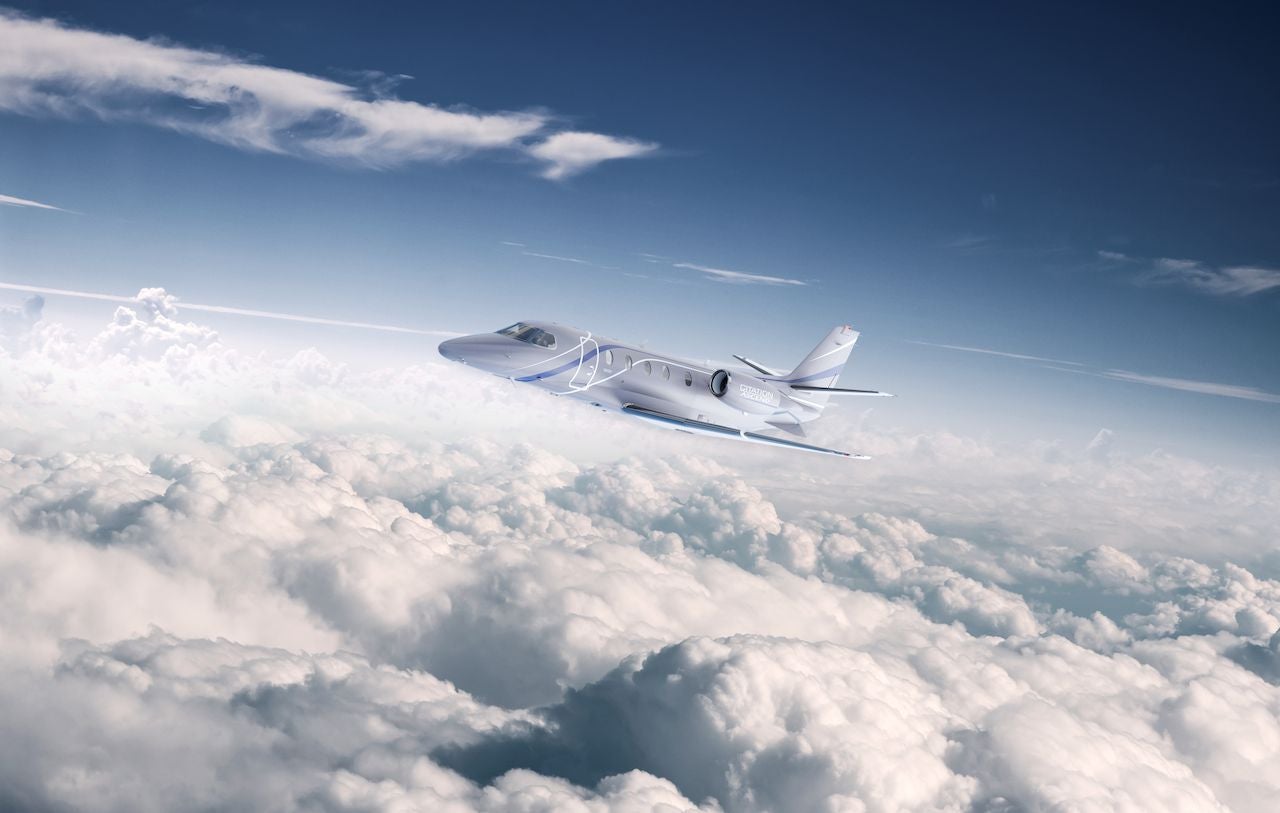
Textron Aviation’s Cessna Citation Ascend is the next generation of the Excel XLS entry-level midsize jet. Its most noticeable innovation is the optional flat-floor cabin, something that your four-legged buddies will particularly appreciate. With four passengers it has a range of 1,900 nautical miles, meaning New York to Salt Lake City or London to Ankara nonstop. (Including pilots, it has a capacity of up to 12.)
There are also more fuel-efficient engines and plenty of baggage capacity. With the industry still coping with maintenance backlogs and parts shortages, the expected best-in-class maintenance intervals result in time and cost savings for you.
Comeback story: Wheels Up
With a new investment of $500m led by Delta Air Lines, Wheels Up enters what could be called its 3.0 phase. Founded in 2013 as a King Air membership program, in 2018, with private equity money, the company launched an acquisition spree. The firm also bought a half dozen operators, including Delta Private Jets, making Delta, the airline, its largest shareholder.
While Wheels Up hit founder Kenny Dichter’s early projections for the company — 10,000 members and over $1bn in sales in 10 years — losses mounted. A restructured program debuted in June, and Delta and partners now control 95% of Wheels Up, protecting the deposits of members who would have been unsecured creditors in bankruptcy.
At least for now, Wheels Up continues to offer its value-oriented long-flight discounts from the eastern US to and from Arizona, California, Colorado, Nevada and Utah, along with Bozeman, Jackson Hole and Sun Valley. It also continues to offer its workhorse King Air turboprops that seat up to eight passengers and are well-suited for short hops.
Sharing is caring: JSX
If you want the private jet experience on the ground but only want to pay airline prices, JSX is your airline. The flight provider uses former regional jets reconfigured with fewer seats, all leather; more legroom; free high-speed Starlink Wi-Fi; and even two complimentary checked bags, plus snacks and drinks. Its flights operate on a schedule, and you can buy seats via its website starting for under $200.
The key benefit is on the ground, where JSX uses private terminals, meaning you only need to check in for domestic flights 20 minutes before departure. The company’s expanding network now includes Nashville; Taos, New Mexico; Marsh Harbour in the Bahamas; and Denver/Boulder and Gunnison/Crested Butte in Colorado. What’s more, JSX is pet-friendly, meaning you can always take off with your best friend.
VistaJet sister XO and JSX are pushing growth in the by-the-seat private jet market. While you can crowdsource flights on its user-friendly app, you can also buy seats on flights it schedules between private terminals. After bulking its schedule between New York and South Florida to as many as six flights per day, JSX announced flights from South Florida and New York to Aspen.
While seat costs range from around $1,500 to over $4,000 for longer flights, you avoid long lines at crowded terminals and relax in comfort. The company’s dedicated jets have just 16 or 18 seats in a 1-by-1 configuration, so you always have a window seat with aisle access.









